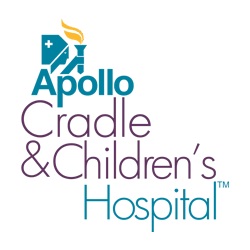Anesthesia and Pain Management
The two essential components of modern medical care allow medical professionals to perform procedures and surgeries with minimal discomfort and risk to the patient. Anaesthesia refers to the usage of medications to block sensation, including pain, during medical procedures. Pain management involves the usage of different techniques to manage and alleviate pain after a procedure or surgery.
The Common Symptoms of Anesthesia
Anaesthesia helps in blocking sensation during medical procedures. A medical professional administers it through different methods, including intravenous injections, inhalation, and topical application. Common symptoms of anaesthesia include:
- Drowsiness
- Confusion
- Nausea
- Dry mouth
- Blurred vision
- Slurred speech
- Itching
- Headache
The Common Symptoms of Pain Management
Pain management requires medications and other techniques to lessen pain after a procedure or surgery. Common symptoms of pain management include:
- Pain
- Swelling
- Bruising
- Redness
- Tenderness
- Numbness
- Tingling
- Weakness
What causes Anesthesia?
Anaesthesia is caused by the administration of medications that block sensation during medical procedures. The type and dose of medication used will depend on the procedure, the patient's age, medical history, and other factors.
What is the use of Pain Management?
Pain management is necessary to manage and alleviate pain after a procedure or surgery. Like anaesthesia, the medication used for pain management will vary based on the procedure, the patient's age medical history, and other relevant factors.
To prepare for anaesthesia and pain management, stay hydrated and follow instructions from your healthcare provider regarding food and medication. Have someone in close quarters drive you home after the procedure or surgery as you may feel drowsy or disoriented.
When should you see a doctor?
If you are experiencing discomfort or pain after a medical procedure or surgery, you should speak with your healthcare provider. They will be able to recommend appropriate pain management techniques and medications.
Remedies/Treatment
Anaesthesia and pain management allow healthcare providers to perform procedures and surgeries with minimal discomfort and risk to the patient. There are a variety of methods and medications used for anaesthesia and pain management, including intravenous injections, inhalation, topical application, and over-the-counter medications.
It is important to follow your healthcare provider's instructions for anaesthesia and pain management carefully. You may consider taking medications as prescribed, avoiding certain activities or foods, and reporting any side effects or concerns to your healthcare provider. Anaesthesia and pain management help to ensure the safety and comfort of patients during and after medical procedures and surgeries. By following your healthcare provider's instructions and taking steps to prepare for anaesthesia and pain management, you can ensure that you receive the best care possible.
Request an appointment at Apollo Cradle, Bengaluru - Koramangala. Call 1860-500-4424 to book an appointment.
There are several types of anaesthesia available, including general anaesthesia, regional anaesthesia, and local anaesthesia. General anaesthesia is used to put the patient to sleep, while regional anaesthesia numbs a specific area of the body. Local anaesthesia numbs a small area of the body.
Anaesthesia is generally considered safe, but like any medical procedure, it carries certain risks and side effects. These may include allergic reactions, nausea and vomiting, and pain at the injection site. More serious complications, such as respiratory problems or nerve damage, are rare but can occur.
The type of anaesthesia chosen for a specific procedure or surgery will depend on a variety of factors, including the nature of the procedure, the patient's medical history, and the patient's preferences. The anesthesiologist will consider all of these factors when selecting the most appropriate anaesthetic option.
If you are experiencing discomfort or pain after a procedure or surgery, you should speak with your healthcare provider. They will be able to recommend appropriate pain management techniques and medications.
To ensure that you receive the best anaesthesia and pain management care, it is important to follow your healthcare provider's instructions carefully and report any side effects or concerns to them. You should also inform your healthcare provider of any allergies or sensitivities you have to medications, and make sure they are aware of your medical history. You have to be honest and open with your healthcare provider about your pain levels and any discomfort you may be experiencing. This step will help the experts to determine the most effective treatment plan for you.
Our Doctors
Treatments
- Anaesthesia & Pain Management
- General Pediatrics
- Growth Chart
- Newborn Screening
- Pediatric Allergy
- Pediatric Dermatology
- Pediatric Endocrinology
- Pediatric Nutrition
- Pediatric Orthopedics
- Pediatric Psychology
- Pediatric Surgery & Urology
- ROP Screening
- Stem Cell Banking
- Vaccination/Immunisation Schedule

 93% Patient Satisfaction Score
93% Patient Satisfaction Score











